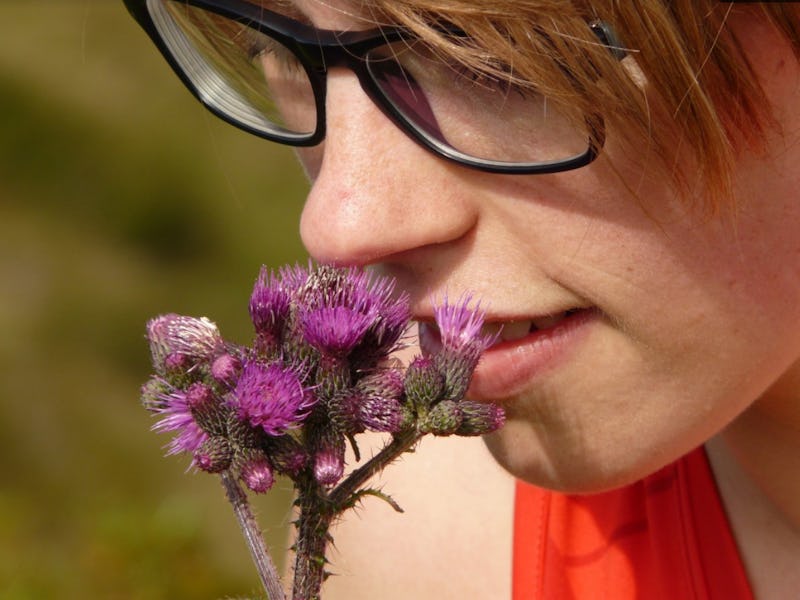Hunter-Gatherers Are Virtuosos at Identifying Smells, Scientists Find
The rest of the world is much better at identifying shades and hues.

Think of the multitude of colors you can recognize in the world around you. You likely can pinpoint the nuance and shade of the things you see — aquamarines, crimsons, olives and the like. But that same precise expertise almost certainly doesn’t translate to smells. Most people are limited to calling an odor “good” and “bad” or finding some approximate fragrance to compare it to, versus using an exact label for it. You can think something smells like a skunk, but what does skunk actually smell like?
According to new research published Thursday in Current Biology, there are a group of people who can name and identify smells with ease: hunter-gatherers. In this new paper, scientists from Radboud University studied hunter-gatherer communities in the tropical Malay Peninsula and found they were far better at identifying scents than groups living in the same region who are horticulturalists. The latter group was more similar to previously studied English-speakers who struggled to identify odors as easily as they do colors.
Prior to this research, scientists noticed a group of hunter-gathers in the Malay Peninsula called the Jahai people had the uncanny ability to easily and accurately identify scents. That observation inspired the team behind this new study to study two more groups in this tropical area: the Semaq Beri, who are hunter-gatherers, and the Semelai, who are not.
Semaq Beri women foraging on the right and Semelai women harvesting on the right.
The team tested the odor and color identification skills of 20 Semaq Beri and 21 Semelai people. They presented them with 80 color chips with varying degrees of hues and brightness, as well as sixteen odors than included scents like turpentine, apple, licorice, and leather. Then they were simply asked in their native language if they could say what they were seeing or smelling.
The researchers found that the Semaq Beri, just like the Jahai, were much better at naming scents and colors with an equal capability. Meanwhile, the Semelai, like English speakers, had difficult naming the odors. The researchers theorize that the superior sense of smell, or olfactory capabilities, likely stem from the continued reliance on smell as a hunter-gatherer.
“There has been a long-standing consensus that ‘smell is the mute sense, the one without words,’ and decades of research with English-speaking participants seemed to confirm this,” co-author, Asifa Majid, Ph.D., explained in a statement released Thursday. “But, the Jahai of the Malay Peninsula are much better at naming odors than their English-speaking peers. This, of course, raises the question of where this difference originates.”
People who are not hunter-gatherers have a worst sense of smell.
This theory that cultural practices have augured a more accurate and nuanced sense of smell, however, challenges the notion that smell capability is tied to genetics. Biological anthropologists believe that a sense of sight became more important to humans than smell when we began to walk upright. There’s evidence that 60 percent of olfactory receptor genes, which detect odorants, are functionally inactive in humans — a genetic trade-off scientists believe happened with humans evolved to have trichromatic vision, which helps us see in color.
But this trade-off — olfaction senses for trichromatic vision — isn’t necessarily supported by the new findings, because that would mean humans are universally better at identifying colors than odors.
The researchers acknowledge this “problematic” puzzle — but say it does open the door to many more fascinating questions. Do hunter-gatherers in other areas of the world, like those in Thailand and Mexico, have the same superior smell capabilities? Is there ability to identify color weakened by that? The authors say that needs to be studied next: Because olfactory genes are linked to perceiving scents, but not naming them, it very well may be that the culture of hunter-gatherers is what has given them a richer aptitude for identification.